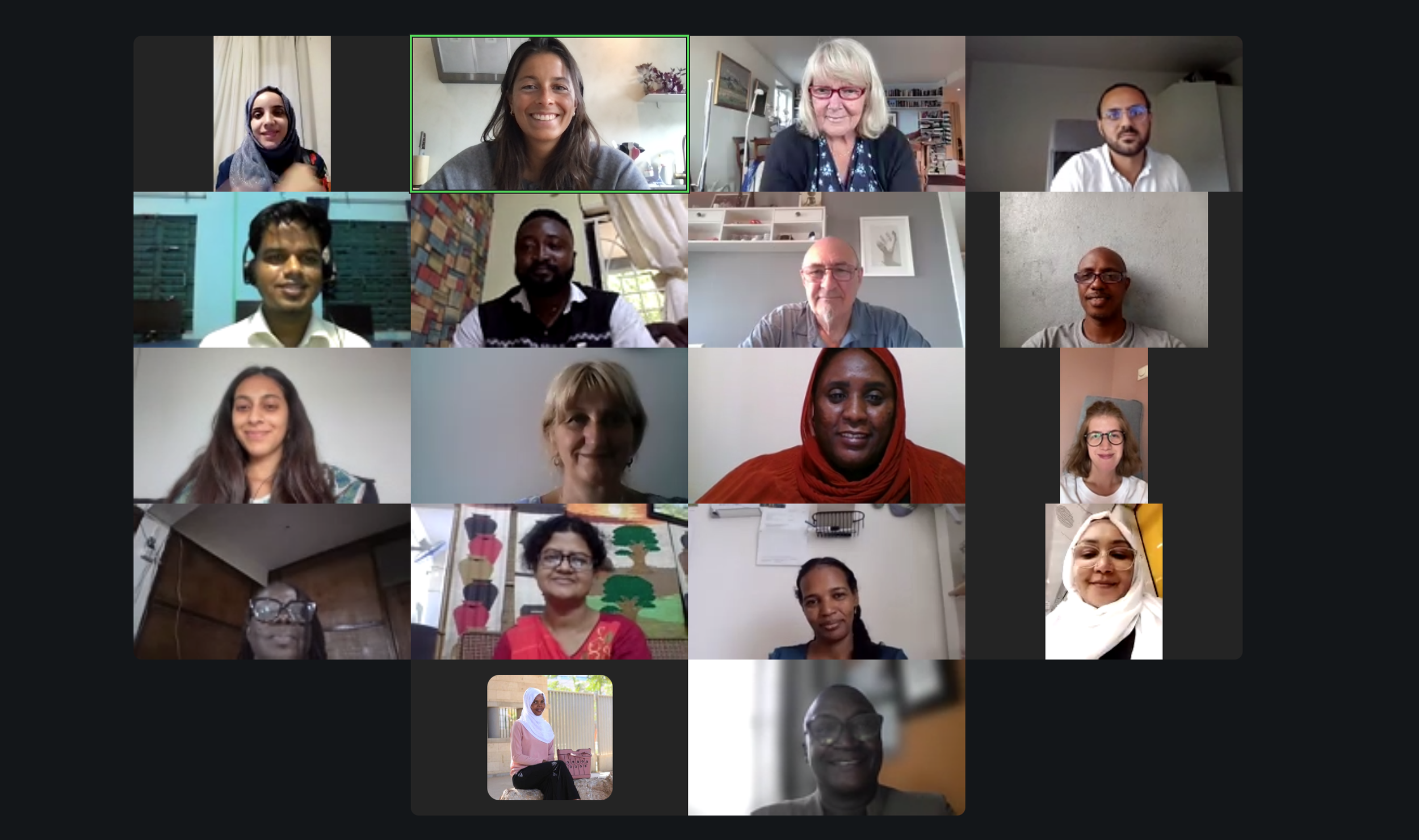Children and War Foundation offers a 3-day online training in English on the use of the Teaching Recovery Techniques manual.
Dates: Friday - Sunday, February 27th - March 1st 2026
Time: 10.00-15:00 Norwegian time / 09:00 - 14:00 UK, BST, UTC +1 each day.
Format: Live on Zoom
Trainers: Alba Banoun and Helen Johnsen Christie — certified TRT trainers and licensed clinical psychologists.
Fee: NOK 2000
Fees & payment
If you need a reduced or waived fee, please contact the Children and War Foundation.
Payments are made securely by credit card via Stripe.
Questions about payment? Email contact@childrenandwar.org
About the Teaching Recovery Techniques (TRT)
The TRT intervention is the most widely used CAW intervention. TRT was designed to help trauma exposed children in low-resource settings to reduce psychological trauma symptoms (PTS).
CAW does not recommend that Teaching Recovery Techniques (TRT) is used as a stand-alone intervention, but that it is integrated into a co-ordinated response. CAW recommends that TRT is used in accordance with core principles of MHPSS in emergencies: human rights and equity, participation, do no harm and building on available resources. We strongly recommend that TRT is used according to the Inter Agency Standing Committee (IASC) guidelines MHPSS in emergencies, by clicking here. This means that TRT should be used in the context of a multi-sectoral response. Even in an emergency setting, humanitarian actors and communities should plan, establish and co-ordinate a set of minimum responses to protect and improve people’s rights and health. This requires coordinated action among all government and non-government humanitarian actors. MHPSS in emergencies should be integrated into the wider system, such as primary health care, as far as possible. Mental health and psychosocial support should be developed as a layered system of complementary supports that meets the needs of different groups, from basic security and safety, to non-specialised support such as TRT, to specialized services such as therapy. You may find more information about the Inter Agency Standing Committee resources here.
The TRT programme is based on trauma-focused cognitive behavioural therapy for children. It is a simple and scalable intervention that can be used by people who are not mental health specialists. We recommend all to take part in TRT training before using the manual.
There are several studies of the acceptability and effect of TRT, for example from Palestine (Barron et al.,2013, 2016; Qouata et al.,2012), Brazil (Barron et al., 2020), Sweden (Sarkadi et al.,2018, 2020) and Norway (Nilsen Solhaug et al.2023). The work of Children and War Foundation has been described by Yule et al. and experiences from TRT are discussed by Heltne et al. (2023) Overall, TRT has been found to be effective and acceptable (Davis et al., 2023).
High acceptability of TRT has been reported together with large effect sizes in reducing signs of PTSD, depression, and grief in the context of conflict in Palestine (Barron et al., 2013, 2016). Moderate effects have been found in Gaza (Qouta et al.,). A study of unaccompanied refugee minors conducted in Sweden showed a significant decrease in PTSD and depression (Sarakadi et al., 2018).
Positive effects of TRT + parenting support among Syrian refugees in Lebanon has also been described (El-Khani et al., 2021) and in Ukraine (Yavna et al., 2024)
More references on the TRT can be found by cliking here.

